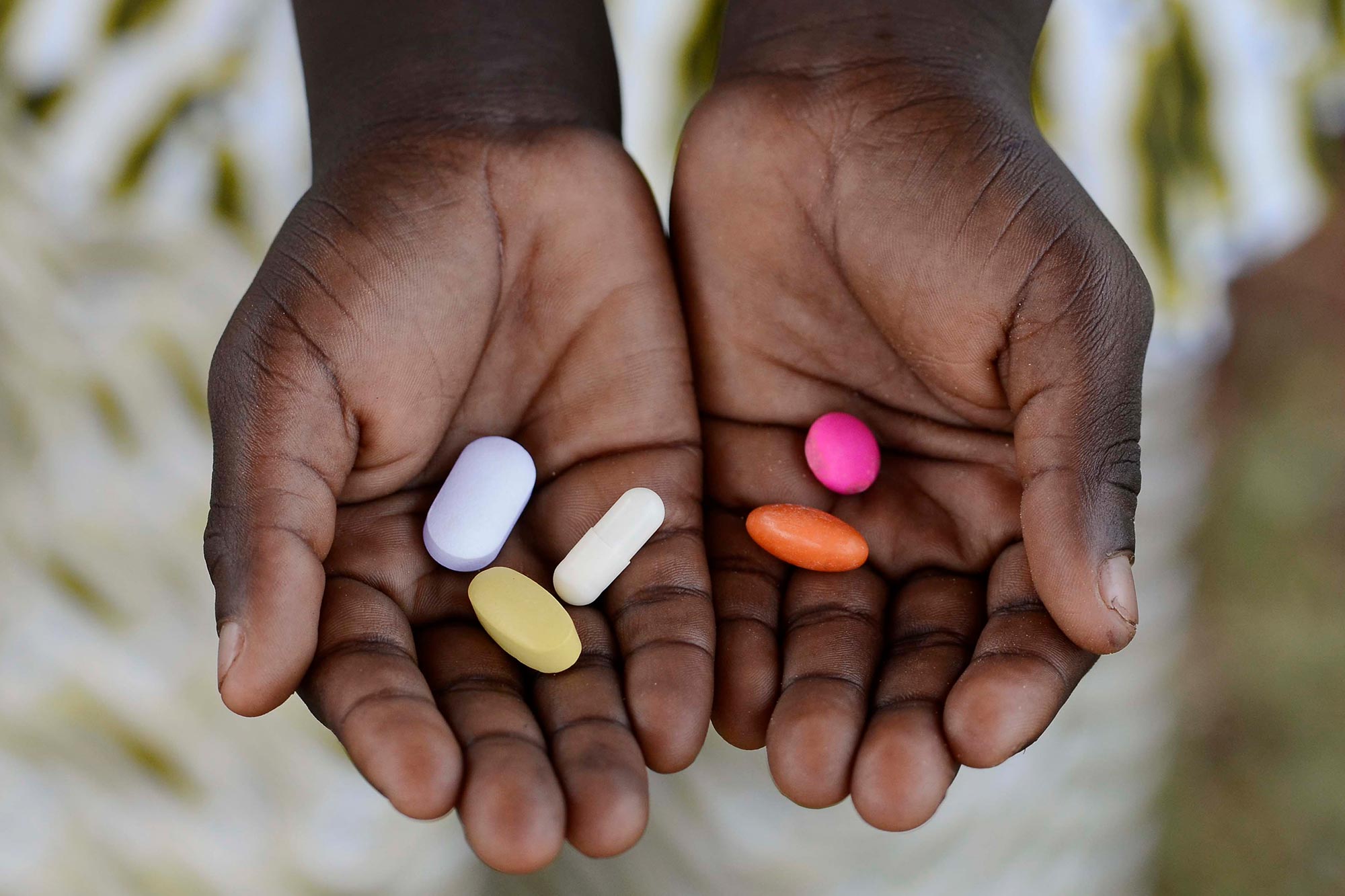Dolutegravir, the current first line treatment for HIV, may not be as effective as it is hoped in sub-Saharan Africa, suggests new research released on World AIDS Day. The study notes that this so-called “miracle cure” may be less effective in patients who are resistant to older drugs.
When HIV copies and replicates itself it can develop errors or “mutations” in its genetic code (its) RNA). While a drug may initially be able to suppress or even kill the virus, certain mutations can allow the virus to develop resistance to its effects. If a mutant strain spreads within a population, it could mean that once effective drugs can no longer treat people.
HIV treatment usually consists of a cocktail of drugs containing a type of drug known as a non-nucleoside reverse transcriptase inhibitor (NNRTI). However, in recent years HIV has started to develop resistance to NNRTIs. Between 10% and 15% of patients in much of sub-Saharan Africa are infected with a strain of HIV resistant to these drugs. When a patient is infected with an NNRTI-resistant strain, they are two to three times more likely to fail the drug regimen.
In 2019, the World Health Organization began recommending dolutegravir as the first line treatment of choice for HIV in most populations. Dolutegravir has been called a “miracle cure” because it was safe, effective, and inexpensive, and scientists had not found drug resistance to it in clinical trials. However, there is little data on the success of dolutegravir against circulating strains of HIV in sub-Saharan Africa.
In a study published today (December 1, 2020) in Nature communicationAn international team of researchers from South Africa, Great Britain and the USA examined the genetic code of HIV to determine whether mutations in drug resistance in 874 volunteers living with HIV affected their treatment success. People were enrolled in a clinical trial for people starting HIV treatment to compare two drug regimens: efavirenz, an NNRTI and previous first-line therapy in the region, and dolutegravir.
The aim of this study was to determine whether drug resistance to efavirenz before starting treatment affected treatment success (suppression of the virus in the blood) during the first two years of therapy with these two regimens.
As expected, the presence of drug resistance significantly reduced the likelihood of treatment success in people taking efavirenz, suppressing the virus for 96 weeks in 65% of participants compared to 85% of non-resistant people. Unexpectedly, however, the same pattern applied to people taking dolutegravir-based treatments: 66% of patients with efavirenz resistance mutations remained suppressed for 96 weeks, compared with 84% of patients without the mutations. These relationships hold true after considering other factors such as adherence to treatment.
“We fully expected that efavirenz would be less effective in patients who are resistant to NNRTIs,” said Dr. Mark Siedner, faculty member at the Africa Health Research Institute in KwaZulu-Natal, South Africa, and the Massachusetts General Hospital in Boston, Massachusetts. “What surprised us completely was that dolutegravir – another class of drugs that are generally effective in the face of drug resistance – is also less effective in people with these resistant strains.
“We are now working to find out whether this is due to the virus or the participants – for example, if people with resistance are taking their pills less regularly. If this pattern is correct, it could have far-reaching implications for our predictions of long-term treatment control for the millions of people taking dolutegravir in the area. ”
Professor Ravi Gupta of the University of Cambridge Department of Medicine said, “This is a big problem. Dolutegravir has been widely viewed as a “miracle cure”, but our study suggests that it may not be as effective in a significant number of patients who are resistant to another important class of antiretroviral drugs. ”
The researchers say it’s not clear why efavirenz-resistant mutations should affect dolutegravir’s sensitivity, although one hypothesis is that integrase inhibitors like dolutegravir cause the virus to replicate and mutate more quickly, which in turn creates resistance to the new drug developed in an evolutionary arms race. Alternatively, this could be due to poor compliance with treatment regimens, although the analysis considered compliance by two independent methods. More research is needed to find out why.
Professor Gupta added, “This shows that we urgently need to prioritize point-of-care testing to identify people with HIV resistance, particularly to efavirenz, and to more closely and closely monitor adherence to treatment. The development of such tests is at an advanced stage, but there is a lack of investment from funders and philanthropic donors. We urgently need agencies and individuals to move forward and support these programs.
“In addition, we need to provide full access to viral load monitoring so that we can find those who are struggling, guide them to more appropriate treatment regimens, and limit the emergence of resistance when patients fail therapy.”
Reference: “Reduced efficacy of HIV-1 integrase inhibitors in patients with drug resistance mutations in reverse transcriptase” by Siedner, MJ et al., December 1, 2020, Communication with nature.
DOI: 10.1038 / s41467-020-19801-x
The study was carried out by researchers at: Africa Health Research Institute, University of KwaZulu-Natal, University of Witwatersrand, KwaZulu-Natal Research Innovation and Sequencing Platform, and the Center for the AIDS Research Program in South Africa (CAPRISA), in South Africa; the University of Cambridge, the University of Liverpool and Imperial College London In the United Kingdom; and Massachusetts General Hospital and Harvard Medical School, USA.
The research was supported by USAID, Unitaid, the South African Medical Research Council (SAMRC), with an investigational drug donated by ViiV Healthcare and Gilead Sciences, and Wellcome and the National Institutes of Health.



